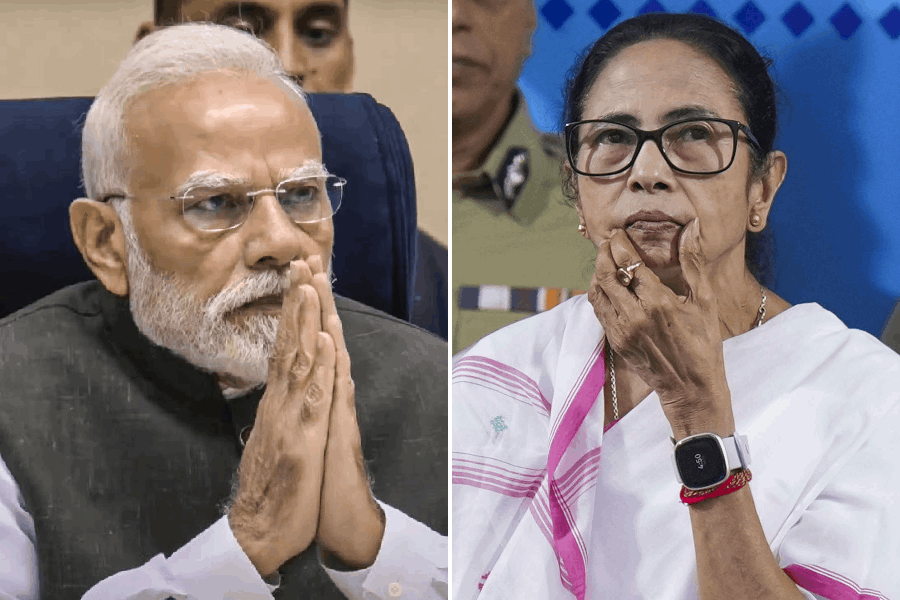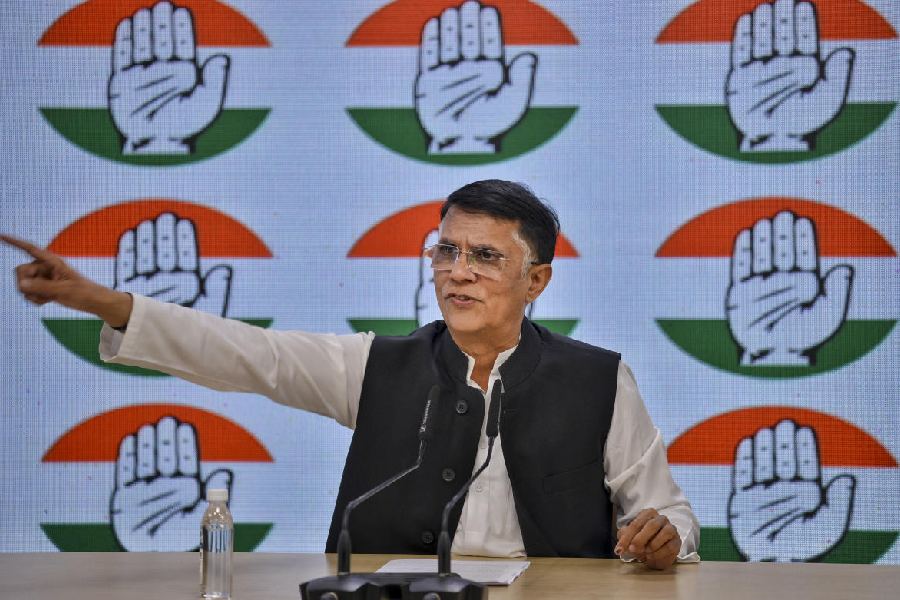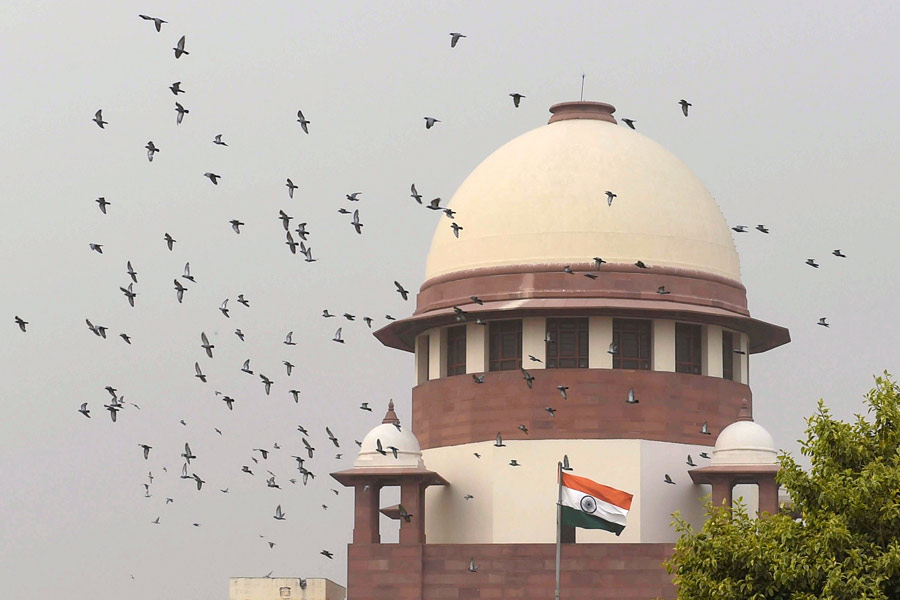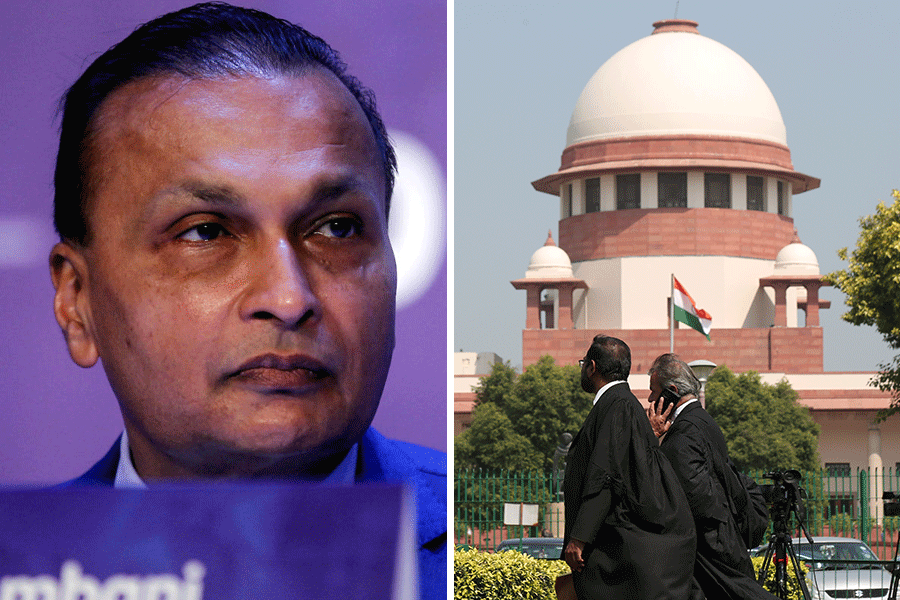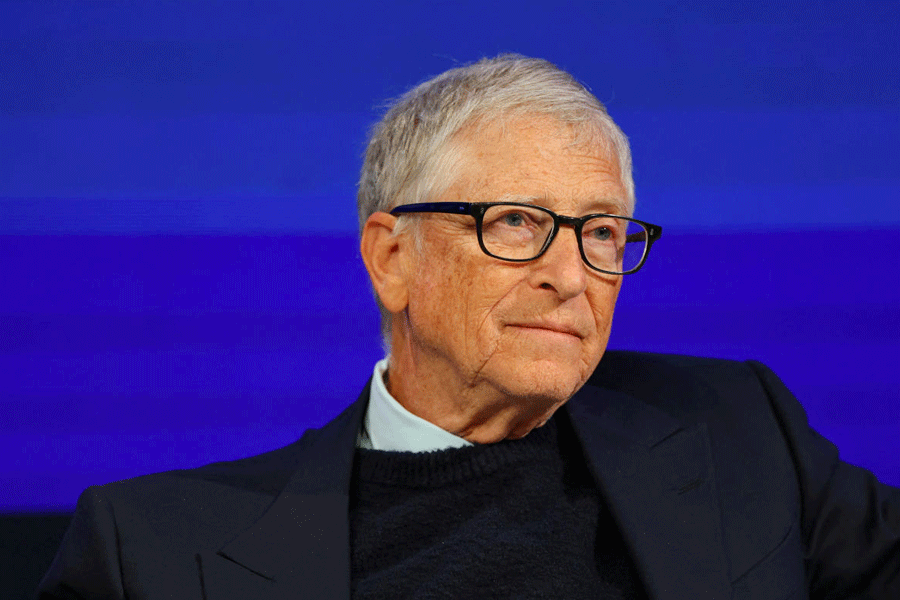|
|
| Aung San Suu Kyi outside the NLD head office, November 2011 |
Myanmar is of great strategic and economic importance to three major powers of this century — the United States of America, China and India. With the first signs of a thaw in Myanmar after 60 years of self-imposed seclusion, it is an open question if India can benefit more from the potential opening up of our neighbour than from being one steed in a two-horse race for influence in that country, as has been the case for the past 20 years.
Even 12 months ago, any prospect of progress in Myanmar appeared utopian, but winds of change are now in evidence, with hopes of a movement towards a pluralist political order. The electoral laws for the elections last year to the national and provincial legislatures had mandated that political parties could not have convicts as members, which constrained Aung San Suu Kyi’s National League for Democracy, since its chief was under house arrest and other senior leaders were in prison. The outcome was a boycott by her party that had overwhelmingly won the free, but later annulled, elections of 1990.
Amid allegations of widespread malpractices, the 2010 elections brought the military-backed Union Solidarity and Development Party to power and the former prime minister, Thein Sein, to the presidency. There were few expectations that the new government would be any more responsive to human and civil rights than the previous army junta. Yet, Suu Kyi was swiftly released from detention and allowed free movement, and some political prisoners were released, with credible indications that many more could be released soon. Restrictions on accessing online media sites are being eased, and the State-run media have refrained from criticizing the press abroad. Legislation permitting the right of workers to unionize and strike has been enacted, the right of people to demonstrate peacefully is awaiting presidential approval, and Burmese in exile are being encouraged to return. Citing environmental concerns and popular protests, the Thein Sein government has halted construction of a giant hydro-electric project on the Irrawaddy in northern Myanmar that was being constructed by Chinese companies mainly to supply electricity to China.
Moreover, there are indications of a rapprochement between the NLD and the government. Suu Kyi has said, “I have met President Thein Sein, and I personally believe that he is very genuine in his desire for change.” The electoral law has been amended to allow people convicted for crimes to join political parties, and political parties henceforth will only “respect and abide” by the constitution and not be obliged to “safeguard” it. Such developments have prompted the NLD to decide to re-register itself and contest some 40 upcoming by-elections. Suu Kyi has hinted she may be a candidate herself.
The imperative of economic growth and the desirability of breaking free from total dependence on China seem to be motivating the Burmese actions, and both will require the regime’s interaction with regional and global powers. The government seems confident that it can control the pace of political reforms by virtue of the USDP’s absolute majority in parliament. With 25 per cent of seats in legislatures being reserved for defence personnel, and constitutional amendments requiring the approval of three-quarters of the members of parliament, there could be no reform possible without the military’s concurrence. Given these provisions, the pace of political reforms in coming years could become contentious between Suu Kyi and the authorities in power. The pace of political reforms will also be impacted by the ongoing ethnic conflicts in Myanmar. There are multiple armed ethnic groups demanding greater autonomy, and the cease-fires between the military and these rebels have come under severe strain due to differences on the proposed integration of the rebels into the border guard force. There are, for example, reports of clashes between the military and the Kachin Independence Army on this issue. If Suu Kyi’s NLD and the government cannot find common ground to address these ethnic conflicts, this too may result in acrimony.
For the moment, irrespective though mindful of such future challenges, the steps taken by President Thein Sein have received international approbation. The Association of Southeast Asian Nations decided to make Myanmar the host for the 2014 Asean summit, which implies that all 10 countries are reasonably confident that the reform process will maintain its course and not be reversed. An Asean summit in Myanmar will receive delegations not only from Asean but also from the US, UK, Japan, Australia and others who have been highly critical, and for a country treated as an international pariah until recently, this would constitute a significant change. A British cabinet minister together with a BBC TV team has just visited Myanmar and met Suu Kyi, while President Barack Obama has announced that secretary of state, Hillary Clinton, will be there next month — the first visit by a senior American dignitary since John Foster Dulles in 1955. If that trip proves fruitful, then economic sanctions imposed on Myanmar by the Western industrialized nations may be lifted, and Myanmar’s engagement with the outside world will fundamentally alter the geopolitics of the region.
It would be premature to come to the conclusion that China is losing its prevailing supreme status in Myanmar. These are early days in the reform process and if there are renewed strains on its relationship with Suu Kyi, the Myanmar government will once again invoke Chinese assistance to balance and fend off any pressure in bilateral and international fora. While it is true that Myanmar has halted construction of a hydro-electric mega-project that would have benefited China, local considerations seem to have played a significant role in that decision, and the fact that the authorities are responsive to the concerns of the populace is regarded as a welcome sign of an awareness of, and respect for, human rights. While the West had turned its back on Myanmar, Chinese businessmen had a free run to develop strong networks with the elite in Myanmar, and such alliances will play an important role in ensuring that China continues to be highly influential.
China has a past record of supporting insurgencies such as the Communist Party of Burma’s uprisings in the 1960s and 1970s. The Myanmar-China border is extremely porous and China has close ties with a significant number of armed ethnic groups operating in Myanmar, such as the United Wa State Army. Therefore, in the event that relations with Myanmar descend into a tailspin, China has the capacity to encourage armed rebels in Myanmar aggressively to protect its interests. To borrow an evocative phrase from the Burmese author Thant Myint-U, “Myanmar is a place where China meets India.” So much so, that any increased insurgent activity there will prove to be extremely disadvantageous for India, and specifically for our troubled and unstable Northeast.
In the coming years, Myanmar may achieve a measure of plurality in political decision-making. This will present an absolutely novel and challenging environment for New Delhi. Instead of only engaging the military leadership, India must immediately make fruitful contact with various national political parties and the regional ethnic parties. Because of the economic and political sanctions against Myanmar by the US and the European Union, India had found it relatively easy thus far to attract the attention of Myanmar’s decision makers. When the sanctions are lifted, this advantage will disappear, and India will have to compete with many other powerful countries to promote Indian interests in Myanmar. On the other hand, the opening up of Myanmar to global intercourse could equally prove a blessing in disguise, because India by itself is not in any position to stop the Chinese juggernaut from making huge inroads into Myanmar’s politico-economic space. And if economic sanctions are eased, then the foreign investment pattern will be diversified and Indian companies could collaborate with regional and global companies to participate more vigorously in Myanmar’s economic opportunities.
It is accordingly the right moment for India to scale up its politico-economic and cultural engagement with Myanmar dramatically. Democracy always requires robust institutions in the political and economic realms, manned by citizens with adequate training to staff these institutions. Given India’s democratic experience, it can and should play a significant role in human resource and capacity building, which, in turn, will facilitate the speedy and sustainable political reform process. Now that Myanmar is on the move, there is no time to be lost.



